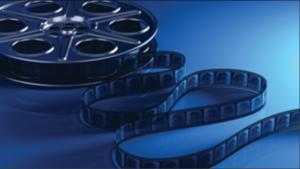Dr Jonathan Hare, star of BBC TV's Hollywood science series, wants to investigate the truth behind the science in your favourite film clips

Could Bruce Willis have survived the fall in Die hard? Do acid lakes exist and could you cross one in a metal boat as they did in Dante's Peak? What is Kevin Costner actually drinking at the start of Waterworld? The answers to these and 'similar' questions can be found in Education in Chemistry's student supplement, InfoChem in my column On-screen chemistry.
The series is based on the Hollywood science (HS) series, broadcast a few years ago on BBC TV and presented by myself and Robert Lewellyn (of Red dwarf and Scrapheap challenge fame). The idea was to scrutinise carefully selected short clips from films (or TV) and ask: 'Could this really be done or is it just a "Hollywood" stunt?'. It's a way to explore what might really be possible, to try out 'back-of-the-envelope' type calculations, and get experience of making estimates in science.
Such 'thought experiments' can be a creative way of generating discussion and intriguing exploration of existing knowledge, and learning in a new setting. They can provide teachers with a motivating resource and science 'pick-me-up' for a class.
I have found that using just three clips with time for discussion and presenting some simple calculations can easily fill an hour, with the students (at GCSE and A-level) wanting more and intrigued to go home and look again at their favourite films. This type of analysis enhances and inspires their learning and thinking of science.
Please send me your favourite film clips, TV moments or web video clips (eg YouTube) and I will investigate them and then share my analyses through the InfoChem articles. I am also available for giving Hollywood science talks in schools, colleges and science festivals.
Related Links
To encourage, stimulate and explore the Art of experimenting






No comments yet